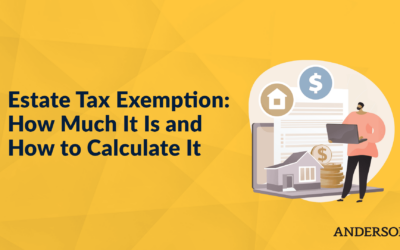
A land trust is a tool used in estate planning that allows you to maintain confidentiality and protect yourself from liability. Real estate properties and land can be a great way to diversify your investment portfolio, but they don’t come without risk. A land trust may be the solution you need to protect your assets.
Key Takeaways
- A land trust is a legal agreement that limits liability and maintains confidentiality.
- A land trust works by transferring the property title to a trustee you choose.
- There are two types of land trusts: title-holding land trusts and conservation land trusts.
- A land trust offers many benefits, including legal protection and tax incentives.
- A land trust may allow your family to avoid probate.
What Is a Land Trust?
A land trust is a legal agreement between a property owner and a trustee. In a land trust agreement, the owner or manager of the property is kept confidential. Land trusts are a type of living trust that may be specified to the unique needs of the land trust holder. The primary goal of a land trust is to reduce your risk of liability and maintain privacy. A land trust may include physical property, including single-family homes, condominiums, or commercial businesses. It may also include mortgages or property notes.
How Does a Land Trust Work?
A land trust works by creating a legal document that transfers the property’s title to a designated trustee. Creating a land trust is often a part of estate planning, which determines how you’ll distribute your assets upon death or incapacitation. A land trust agreement includes a grantor, trustee, and beneficiary. In many cases, the trustee and beneficiary are the same people, but this isn’t always the case.
Some real estate investors may purchase property with the goal of creating a land trust. In this case, you, the investor, buy the property as either an individual investor or business and then legally transfer the title into a land trust. You can set any specific requirements or maintain as much control as you want with a land trust. The average timeline of a land trust is 20 years. At the end of the specified time period, the land trust reverts back to the property owner unless they choose to extend it.
LAND TRUST KIT
Anderson’s Land Trust Kit provides the training, the expert tips, the support documents, and the clarity you need to confidently and correctly set up your land trust. Land trusts are an invaluable tool in any savvy investor’s toolbox.
Types of Land Trusts
Different land trusts allow you to choose the one that best fits your financial situation. There are two types of land trusts, which include:
- Title-holding land trust: A title-holding land trust may be the right option if you want to maintain confidentiality without giving up property control. A title-hold land trust is sometimes referred to as an Illinois land trust because this is the origination of the land trust agreement.
- Conservation land trust: A conservation land trust requires the property owner to give up some property rights. In a conservation land trust, the property owner gives up the use of their property to help protect wildlife or conserve land. Some states may refer to a conservation land trust as a community land trust.
Not sure which type of land trust is right for you? Schedule your wealth planning blueprint call today to learn everything you need to know about land trusts, including when to use each type and how much it costs to set up a land trust.
How Can a Land Trust Help Me?
A land trust offers many benefits to property owners, including:
Protecting Your Personal Finances
Without separating your investments from your personal finances, you risk them interfering with one another. For example, if you experience losses or lawsuits on a real estate asset, it could affect your personal assets or wealth. A land trust allows you to keep your personal and business assets separate.
Protecting Your Other Investments
A land trust can also be used to protect other investments. You can diversify your risk by creating an investment portfolio that includes a wide range of assets. Then, limit your risk of underperforming real estate assets by creating a land trust.
Another benefit to land trusts is that they allow you to keep the sale price of property confidential. This can help with negotiations and maximizing your profit on investments. A land trust can even be useful in protecting the asset that it covers. Land trusts can help you avoid a due-on-sale clause by transferring the property without having to pay the debt in full.
Protecting Your Business Assets From Frivolous Lawsuits
Hiding your personal wealth and identity from others can also reduce your risk of frivolous lawsuits. Public records show the trustee’s name rather than your own in a land trust agreement. A land trust makes it difficult for others to estimate your net worth, which may keep people from pursuing legal action based on this information.
It’s important to note that a land trust doesn’t remove all liability from the property owner or trustee. Registering your land trust with an LLC can offer you additional liability protection.
Offering Tax Benefits
A land trust could also offer you tax benefits, especially if you choose a conservation trust. This is because the land included in the land trust supports the protection of wildlife. Some land in a conservation land trust may also be used to create low-income housing. Even with a land trust, you’ll also still be eligible for tax benefits like homestead or senior benefits.
Speeding Up the Probate Process
A land trust also allows your family to avoid probate. When you create a land trust, you designate the succession of ownership. This means your successor can avoid the expensive and timely process of probate. A land trust also transfers the title to the trustee during your life, which means a court doesn’t have to designate it upon death.
What is a land trust, and why do you need one? A living will is a good start to estate planning, but it’s usually not enough. A land trust is another resourceful tool that can provide you with benefits for you and your heir. Do you want to find out how a land trust can specifically help protect your financial interests? Schedule your wealth planning blueprint call today to start the process of estate planning.
Free Strategy Session with an Anderson Advisor
Receive a detailed risk assessment to assist in lowering problem areas that could wipe out all of your assets with one wrong move. Speak with an Anderson Professional Advisor to get your FREE Strategy Session. Limited-Time Offer: FREE (a $750 value.)















